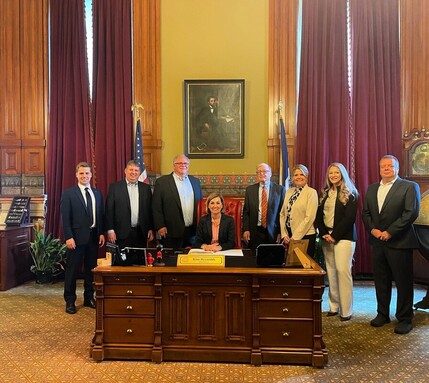House File 2475 makes three primary changes to Iowa Code Section 388.3, as follows:
- Specifies that municipal utility trustees can only be removed from office by the Mayor with the unanimous approval of the city council for the following reasons:
- Willful or habitual neglect or refusal to perform the duties of the office
- Willful misconduct or maladministration in office
- Corruption
- Extortion
- Upon conviction of a felony
- Intoxication, or upon conviction of being intoxicated
- Conviction of violating campaign finance laws
- Failure to pay a fine imported for election misconduct
- Habitual non-attendance of board meetings
- Adds that written notice of removal must be sent to the trustee, and they shall be entitled to a hearing within 30 days of removal. After the public hearing or the passing of 30 days, the city council must vote on the approval to remove the trustee.
- The new law does not apply to cities with a population over 200,000 as of 2020.
Beginning with Oskaloosa in 2013, some Mayors have interpreted their general removal powers to extend to independent utility trustees. The issue recently came to notoriety in 2021 when the outgoing Indianola Mayor attempted to unilaterally dismiss two utility trustees in her last 30 days of office. Without legislation to clarify the process that applied to the removal of utility trustees, cities and utilities would have continued to engage in costly litigation to resolve questions of utility board independence.
More than 80 municipalities across Iowa have voted to form independent utility boards to insulate their utility from city politics and manage their utility so that there would never be any diminution of service. IAMU worked to ensure the passage of HF 2475 because it preserves local control, the will of voters, and the independence of municipal utility boards. The newly enacted law removes the ambiguity over the removal process as it applies to utility trustees and allows trustees to do their job in the best interest of ratepayers without fear of political retaliation.
For additional information on the new law and its applicability, contact IAMU Director of Government Affairs, Attorney Alex Cutchey at 515.289.5218 or [email protected].


 RSS Feed
RSS Feed
